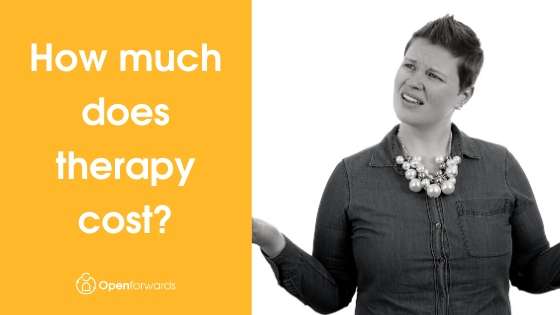Cognitive behavioural therapy (CBT) is a talking therapy that can help you manage your problems by changing the way you think and behave.
It’s most commonly used to treat anxiety and depression, but can be useful for other mental and physical health problems.
How CBT works
CBT is based on the concept that your thoughts, feelings, physical sensations and actions are interconnected, and that negative thoughts and feelings can trap you in a negative cycle.
CBT aims to help you deal with overwhelming problems in a more positive way by breaking them down into smaller parts.
You’re shown how to change these negative patterns to improve the way you feel.
Unlike some other talking treatments, CBT deals with your current problems, rather than focusing on issues from your past.
It looks for practical ways to improve your state of mind on a daily basis.
What happens during CBT sessions
If CBT is recommended, you’ll usually have a session with a therapist once a week or once every 2 weeks.
The course of treatment usually lasts for between 6 and 20 sessions, with each session lasting 30 to 60 minutes.
During the sessions, you’ll work with your therapist to break down your problems into their separate parts, such as your thoughts, physical feelings and actions.
You and your therapist will analyse these areas to work out if they’re unrealistic or unhelpful, and to determine the effect they have on each other and on you.
Your therapist will then be able to help you work out how to change unhelpful thoughts and behaviours.
After working out what you can change, your therapist will ask you to practise these changes in your daily life and you’ll discuss how you got on during the next session.
The eventual aim of therapy is to teach you to apply the skills you have learnt during treatment to your daily life.
This should help you manage your problems and stop them having a negative impact on your life, even after your course of treatment finishes.
Pros and cons of CBT
Cognitive behavioural therapy (CBT) is effective in treating some mental health problems, but it may not be successful or suitable for everyone.
Some of the advantages of CBT include:
- it can be completed in a relatively short period of time compared with other talking therapies
- the highly structured nature of CBT means it can be provided in different formats, including in groups, self-help books and online
- it teaches you useful and practical strategies that can be used in everyday life, even after the treatment has finished
- it focuses on the person’s capacity to change themselves (their thoughts, feelings and behaviours)
- it can be as effective as medicine in treating some mental health problems and may be helpful in cases where medicine alone has not worked
Some of the disadvantages of CBT to consider include:
- you need to commit yourself to the process to get the most from it – a therapist can help and advise you, but they need your co-operation
- attending regular CBT sessions and carrying out any extra work between sessions can take up a lot of your time
- it may not be suitable for people with more complex mental health needs or learning difficulties
- it involves confronting your emotions and anxieties – you may experience initial periods where you’re anxious or emotionally uncomfortable
- it does not address any wider problems in systems or families that may have a significant impact on someone’s health and wellbeing
Some critics also argue that while CBT addresses current problems and focuses on specific issues, it does not address the possible underlying causes of mental health conditions, such as an unhappy childhood.
How to find a CBT therapist
You can get talking therapies, including CBT, on the NHS.
You can refer yourself directly to an NHS talking therapies service without a referral from a GP.
Find an NHS talking therapies service
Or your GP can refer you if you prefer.
If you can afford it, you can choose to pay for your therapy privately. The cost of private therapy sessions varies. It usually costs £60 to £100 per session, but lower rates may be available to those on lower incomes.
There is a register of all accredited therapists in the UK on the British Association for Behavioural and Cognitive Psychotherapies (BABCP) website.
There’s also a directory of chartered psychologists on the British Psychological Society (BPS) website, some of whom specialise in CBT.
Video: talking therapies for stress, anxiety and depression
Animated video explaining self-referral to talking therapies services for stress, anxiety or depression.
How can I get CBT?
Speak to your GP and they can refer you for CBT through the NHS for free. Or in England, you may be able to refer yourself via the Improving Access to Psychological Therapies (IAPT) programme. The type of CBT you’re offered may depend on the severity of your symptoms.
The NHS IAPT services finder can help you find out which IAPT services are available in your local area, or you can try searching on the NHS mental health services finder (both for England only). Some charities or your workplace may also offer access to a CBT therapist for free.
NHS waiting lists for CBT can be long, so you may decide to see a therapist privately if you can afford it. You can find accredited CBT therapists through the British Association for Behavioural and Cognitive Psychotherapies (BABCP). Our tips on finding a private therapist may also be useful.
Find a therapist
 How much does therapy cost?
How much does therapy cost?
The cost of therapy can vary from very little to over £100 per session. If you go through the NHS, then it is free, of course. The downside is that you usually have to wait at least eight weeks, sometimes much longer.
Why does the price of therapy vary so much?
As with many things, you tend to pay more for better quality. It may come as a shock, but anyone can advertise themselves as a psychotherapist or counsellor. It isn’t illegal to do so. Unlike many other professions such as Doctor, Dentist, Pharmacist and Physiotherapist, there is no regulatory body for counselling and psychotherapy.
How do you know whether your counsellor is qualified?
You should always check that a Counsellor, Psychotherapist or Psychologist has relevant qualifications. When you look at their website or directory listing, any professional worth seeing will mention their training. You can always ask them on the phone if it doesn’t.
What qualifications should they have?
There are many relevant qualifications, so I’ve listed the best. Here they are:
- Post Graduate Diploma in Cognitive Behavioural Therapy (CBT)
- PhD in Clinical or Counselling Psychology
- Masters in Systemic Family Therapy
- Advanced Diploma in Counselling
You should be careful because some people say they have a certificate or diploma in CBT or counselling, but this doesn’t mean it is a post-graduate course. If they are not post-graduate, then they could be cheap online certificates. They are bogus, and you shouldn’t trust people who do that.
The safest way to ensure your counsellor has the appropriate training is to check whether they are accredited. Accreditation means that a therapist is a member of a professional organisation.
It’s not like anyone can join because you have to show proof of training. People must go through a rigorous process of proving they have the right attitude, ethics, training, and experience.
Always make sure that your therapist has one of the following accreditations:
There will be other professional bodies outside the UK, so check what they are if you are seeing a therapist abroad.
It may seem strange that there isn’t just one professional body. It’s because different therapies have developed over time and not from one central place, just like we don’t have one single supermarket or make of car. There are various therapy brands, and you aim to find the brand you like best.
What is the average price of counselling?
As you’d expect, prices are often the highest in London. Across the rest of the UK, you can pay as little as £40 per session or as high as £150. Psychologists often charge more than counsellors because they’ve often undergone more extended training. However, that doesn’t necessarily mean they’re the best person to help you.
What do you charge at Openforwards?
At Openforwards, we have a standard hourly rate of £95 per session. It is higher than average, and here is why.
We charge more because we do more.
We aim to ensure that you BUILD and RETAIN the skills you need to lead a happier and more fulfilling life.
Many counsellors see you for your appointment; they listen and help you reflect. And that’s it – no coping strategies and no in-between support.
We are different.
Lasting change is possible.
Openforwards believe that you need more from us to make lasting change possible. It’s not enough to talk about your problems. We all need to learn the psychology skills our parents and schools couldn’t teach us. That’s why we are specific and direct.
Humans are a complex species, and to master your mind, you must do more than challenge your thoughts. We’ll teach you:
- how to handle your emotions
- what to do with physical pain and discomfort
- how to control your attention to improve focus and concentration
Get in touch
Our team of Counsellors, Psychotherapists, and Psychologists in Birmingham are here to help you work through your anxieties to rest your mind and start focusing on the life you want to live.
Get in touch
Your habits matter too. We need to address what others can see and what we do privately in our heads. Some routines are more visible. Other patterns like self-criticism, rumination and self-pity only you can see.
We must identify both the habits that help and those that hinder our progress.
Building stronger relationships
You’re social, although you may not feel like seeing people right now. Humans evolved in small groups, and you aren’t supposed to be alone. You’re not that animal, so we’ll help you build stronger relationships and resolve problems in those you have here and now.
In summary, we go beyond conventional wisdom and teach you evidence-based strategies so you can work, love, play and feel better.
A wealth of experience
Our therapists, counsellors and psychologists are skilled in multiple therapy models, which means they have an extensive toolbox of coping strategies that can teach you. They’ve also acquired an in-depth knowledge of how people function, so they can help you figure out why you are stuck.
Each session is sixty minutes and structured to ensure you learn a new skill. We want you to have something new and to practice between sessions.
When we teach you the right skills and invest in the practice, you create a powerful transformation.
Remembering what we cover in each session is difficult, so your therapist will send you a written summary after each appointment.
You’ll get audio exercises, written worksheets, articles to read, videos to watch and podcasts to listen to while on the go. Together, we’ll create action plans so you are clear about what you need to do.
Your life and well-being are valuable to us, and we want to do all we can to improve it.
Why do we go further?
Our founder, Jim Lucas, has been doing therapy since 2003 and has learned many things about what works and doesn’t. Breaking old habits is hard, and so is building new ones. It’s why we go further and give you more.
We are eager to keep learning, and how we best help you is an evolving process. We always want to do our best, which is why we listen and adapt.
Change isn’t easy, and yet the world keeps turning. You get older, and you experience new challenges. We are here to help, listen, and share what we’ve learned.
If you are ready to work together, please get in touch, and we’ll arrange a time to talk.



